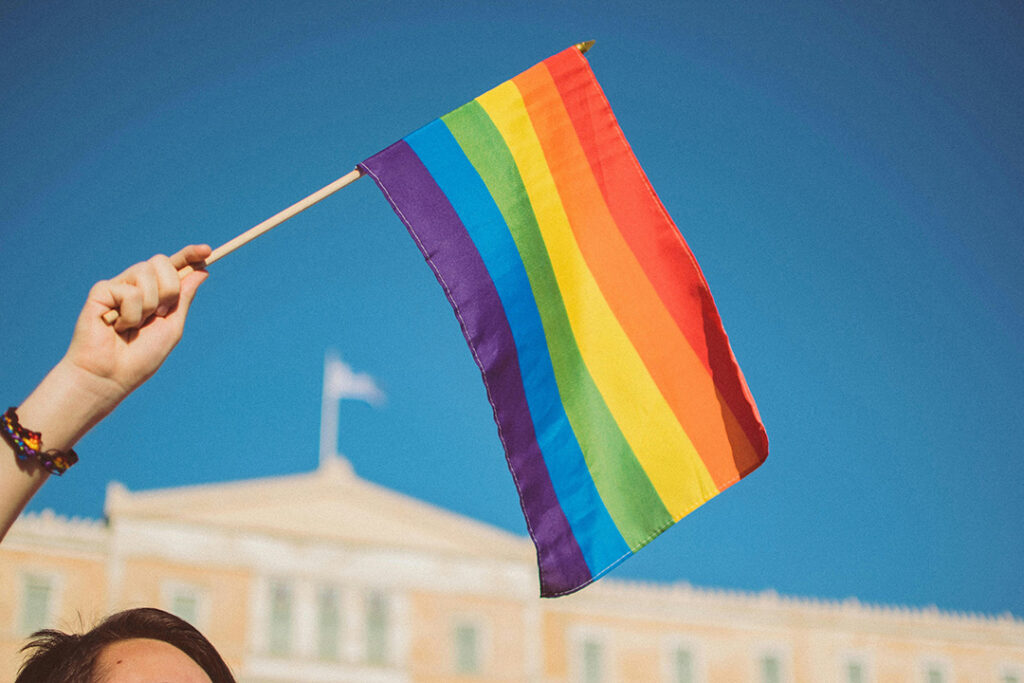Tensions between Church and LGBTQ+ community in Greece over same-sex marriage
Tensions between Church and LGBTQ+ community in Greece over same-sex marriage
With the Greek government seeking to legalise same-sex marriage, tensions between the interests of the Church and the LGBTQ+ community rise.
A significant step for LGBTQ+ people in Greece
Greece will legalise same-sex marriage by 2027, a significant step for the country’s LGBTQ+ community. The approval of this legislation will come as one part of a range of measures aimed at improving LGBTQ+ rights. However, it also comes in the face of hardline opposition from the country’s powerful Orthodox Church.
This step reflects a trend across both Eastern European and Orthodox countries that seem to now be catching up to Western European nations on the question of same-sex marriage, moving ahead despite religious opposition. For this reason, Greece may prove an important example to follow for other nations considering the same steps in the coming years.
Plotting the route forwards
On 21 December 2023, Greek government spokesperson Pavlos Marinakis confirmed that legislation recognising same-sex marriage in the country will be voted on during the current legislature, therefore prior to 2027. This was not the first time the Greek government has made this commitment. In July 2023, Prime Minister Kyriakos Mitsotakis confirmed that “same-sex marriage will happen at some point and it’s part of our strategy.”[1] These plans have received support across the Greek political spectrum. Prominent members of conservative Greek parties have expressed support along with approval from centre-left and leftist parties.[2]
Outright opposition
Marinakis’ statement on 21 December did not come out of the blue. It was made in response to questions asked by the media regarding a 1,500-word document released by the Holy Synod the day before his comments.[3]
The Holy Synod is the governing body of the Greek Orthodox Church, an institution which possesses a wide-ranging influence in the country. According to a 2018 study, 92% of Greeks believe in God and it is estimated that around 90% of Greeks identify with the Orthodox faith.[4] [5] On 20 December 2023, the Synod published their response, which expressed a complete rejection of the proposals to legalise same-sex marriage.[6] This has placed the Orthodox Church in direct conflict with centre-right Prime Minister Mitosakis’ comments that Greece is now “much more ready and mature,” and therefore able to take this legislative step.[7]
Adoption rights and same-sex marriage
It is important to note that although the Church is opposed to same-sex marriage, it has placed a greater focus on the supposed consequences of marriage on the adoption rights of LGBTQ+ people. In the opinion of the Holy Synod, the extension of marriage rights to LGBTQ+ couples would lead to a legal obligation to permit same-sex couples to adopt children. Therefore, given the Church’s view that “children have an innate need and therefore a right to grow up with a father and a mother,” same-sex marriage cannot be legalised.[8]
While in these specific comments the Church has taken a legal issue with the planned law changes, there have also been more controversial statements. The Synod statement has argued that “children are not companion pets,” and are also not “‘accessories to formalise or make same-sex cohabitation sexually acceptable.”[9]
Shifts in public opinion
The focus of the Orthodox Church on adoption, rather than marriage itself, can be better understood when we look at the debate over LGBTQ+ debates in recent years. While same-sex marriage legalisation is a key demand, other significant steps have been made in the last decade.
In 2015, under the leadership of the leftist Syriza party, Greece extended civil union rights to same-sex couples.[10] This was then followed by centre-right Prime Minister Mitosakis creating a committee in 2021 to work on a national strategy for improving the rights of LGBTQ+ citizens. Alongside the work of this committee, Mitosakis’ government has also lifted the ban on gay men donating blood and has banned the unnecessary and “abusive” intersex genital mutilation of children.[11]
These changes have been both a result of and a catalyst for shifting social views on LGBTQ+ rights. In the face of these changes, the Orthodox Church finds itself on the minority side of public opinion when it comes to the question of same-sex marriage. A nationwide survey in 2023 found that 52% of Greeks had a positive view overall when it came to the legalisation of same-sex marriage, with 20% saying they actively “would like it to be allowed” and a further 32% saying they would have no problem with the legalisation. This was contrasted by just 33% who said they do not want same-sex marriage to be legalised.[12]
However, this survey also provided data which is key to understanding the strategy of the Orthodox Church. When it came to the “legal recognition of children of same-sex couples,” the numbers were more mixed. In this case, 47% said they were opposed to such a development, compared to 42% who had a positive attitude.[13]
This helps explain why the Church has placed such a focus on the question of adoption. Although evidently the Church is outright opposed to same-sex marriage and adoption, the question of adoption aligns them on the side of a majority of Greeks. By pulling together these two issues, they aim to bolster social and political opposition to the extension of marriage rights to LGBTQ+ people.
A debate to be faced across the region
During the 2000s and early 2010s, all Western European countries, with the exception of Italy, legalised same-sex marriage. However, this has yet to be the case in Eastern Europe, with only Czechia having done so.
In recent years, the reality has been that LGBTQ+ people and campaigners have often been victims of culture wars seeking to polarise opinions on their rights.[14] Yet, headlines from across the region in late 2023 show the question of same-sex marriage is highly relevant. In Poland, the new liberal government led by Donald Tusk is looking to legalise same-sex civil partnerships.[15]
Meanwhile, in the Baltic states, major steps have been taken. Estonia legalised same-sex marriage on 1 January 2024, and the Latvian government is aiming to do the same by July 2024.[16] However, in other cases, such as that of Romania and Hungary, steps forward for the LGBTQ+ community seem more distant than ever in the face of populist culture wars.[17] [18]
While the movement for the legalisation of same-sex marriage is largely completed in Western Europe, it seems that the debate over LGBTQ+ rights will continue in Eastern Europe for the coming years. In this debate, the role of both formalised religion, in terms of churches, and attitudes based on religious values, will be key. Those seeking to understand the future of LGBTQ+ rights in Europe therefore must keep a keen eye on both the actions of these institutions and the shifts or trends in the attitudes of citizens towards LGBTQ+ issues.
Interested in similar topics? Go to our Dashboard to learn more.
Sources
[1] Greece’s Prime Minister Plans to Legalize Same-Sex Marriage | TIME
[2] Greek government says it stands by same-sex marriage pledge even after opposition from the Church | AP News
[3] Greek government says it stands by same-sex marriage pledge even after opposition from the Church | AP News
[4] Greek attitudes toward religion, minorities align more with Central and Eastern Europe than West
[5] Religion in Greece & the islands | Greeka
[6] Greek government says it stands by same-sex marriage pledge even after opposition from the Church | AP News
[7] Greece’s Prime Minister Plans to Legalize Same-Sex Marriage | TIME
[8] Greek government says it stands by same-sex marriage pledge even after opposition from the Church | AP News
[9] Greek government says it stands by same-sex marriage pledge even after opposition from the Church | AP News
[10] Greece: Historic recognition of same-sex relationships – Amnesty International
[11] Greece will legalise same-sex marriage, despite church opposition
[12] Archbishop Ieronymos says homosexuality is a ‘deviation’ as same-sex marriage debate heats up in Greece – Greek City Times
[13] Archbishop Ieronymos says homosexuality is a ‘deviation’ as same-sex marriage debate heats up in Greece – Greek City Times
[14] The Worrying Regression Of LGBT Rights In Eastern Europe
[15] New Polish government eyes legalisation of same-sex civil partnerships – Euractiv
[16] Same-sex couples able to marry in Estonia from New Year’s Day
[17] Romanian Same-Sex Couples Become Talking Point Ahead Of Key Elections
[18] Hungary’s latest assault on LGBTQI+ rights – CIVICUS LENS






